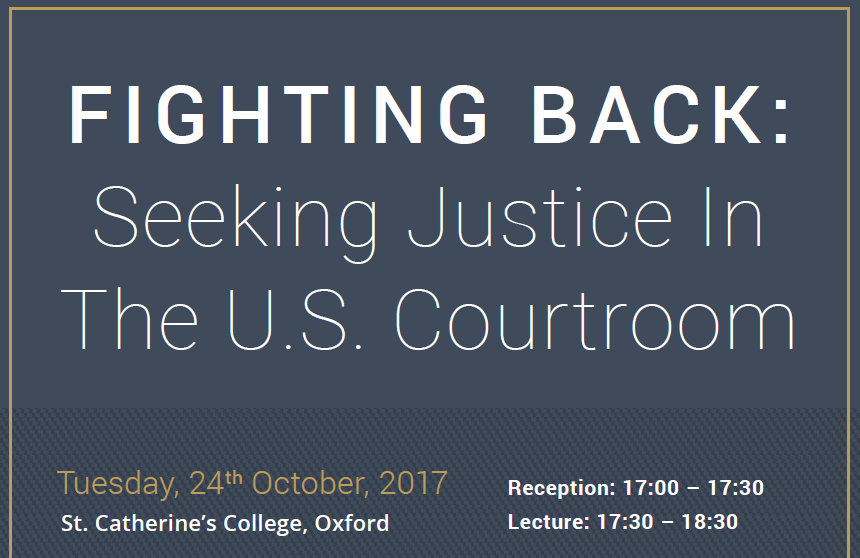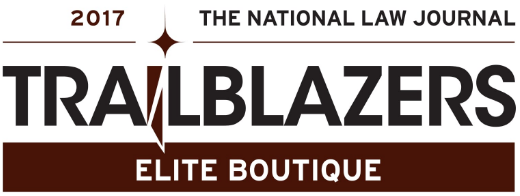Our attorneys are actively involved in the legal community, lecturing frequently on all aspects of civil litigation. Last month, partner Evan Burbidge spoke alongside Casey O’Connor, Associate General Counsel at Stitch Fix, and Neil Pai, General Counsel at Founders Fund, on”Things Start-Ups Should Know.” This well-attended CLE included a discussion of common legal mistakes start-ups make and guidance on how to avoid them. Also in February, partner Ryan Erickson served as a panelist at the BASF’s Annual Solo & Small Firm Conference, where he discussed “How to Level Up Your Law Practice.” And in March, Evan Burbidge served as part of the faculty presenting on “Mastering the Deposition” with Pincus Professional Education.
Author: Lewis
While California law promotes lawful competition, individuals cannot violate agreements with their former employer with impunity. This was illustrated last week when a California jury awarded AeroVironment, Inc. $2.4 million after finding three former employees of the drone technology company engaged in fraud and breached patent and confidentiality agreements with their prior employer. See Aerovironment, Inc. v. Gabriel Torres, et al., County of Ventura Superior Court Case No. 56-2015-00465460.
AeroVironment hired the three defendants to work in its engineering department where the company was developing drone technology for military use. All three defendants signed agreements to keep AeroVironment’s proprietary information confidential and not to engage in any competing activities during their employment. Notwithstanding these agreements, and while still employed by AeroVironment, defendants began planning a competing business and went so far as to found the drone sensor company for which they would all eventually work after their resignations. AeroVironment filed suit soon after discovering such conduct.
The verdict in AeroVironment’s favor demonstrates that even in California, juries will hold former employees accountable for misusing protected information and actively competing with their current employers. In general, California employees may prepare to compete as long as they are not actually pursuing competitive enterprises while employed, or using their employer’s resources to do so. However, these defendants went too far in the jury’s view. The case is a reminder that employers should ensure that their employees sign basic confidentiality agreements as well as agreements that they will not compete during employment. Such agreements can be complemented with strong written policies, including handbooks that prohibit conflicts of interest and describe the employer’s expectations for maintaining confidences.
As with most things, an ounce of prevention is worth a pound of cure. California employers who wish to remain competitive should take these simple steps, as AeroVironment had done, to protect their technologies. The existence of standard agreements was key to AeroVironment prevailing at trial.
Lewis & Llewellyn has extensive experience litigating and advising clients on the myriad issues that can arise when an employee transitions from one company to another. Click here to read more about our practice areas in the field of employee mobility.
In a recent Litigation Tip, we explored the perils that employees face when changing jobs. But at Lewis & Llewellyn, we represent employers in high-stakes litigation as often as we represent plaintiffs. And employers face their own unique concerns in the complex and ever-changing world of employee mobility.
It is very common for contracts, including employment contracts, to contain a choice of law clause, a forum selection clause, or both. These clauses dictate both the venue for any future litigation between the parties, and which state’s law should apply. In 2017, California enacted Labor Code section 925 which has a direct impact on employment contracts for employees who live and work primarily in California. In broad terms, the new provision prevents such employees from being bound to a contractual provision that would force the employee to litigate outside of California, or litigate under another state’s laws, on claims that arose in California. The provision applies to contracts entered into, modified or extended on or after January 1, 2017, and applies to both litigation and arbitration. Not only that, the provision allows for the recovery of attorneys’ fees and injunctive relief for employees having to enforce their rights under the new section. There is, however, a carve out for employees represented by counsel during the negotiation of the contract.
Employers with California employees would be well advised to review their employment agreements for compliance with the new provision, and should keep the new provision in mind when extending or modifying existing agreements, or entering into new agreements with California employees. Where applicable, employers may also want to memorialize the presence of counsel during the negotiations when seeking to avoid the impact of the new section.
Marc Lewis and Paul Llewellyn recently traveled to Oxford University, England, to discuss the firm’s groundbreaking work bringing civil lawsuits on behalf of victims of childhood sexual abuse. The lecture was well-received by both the law faculty and students, and resulted in an impassioned and substantive discussion following the lecture.
Most litigators are generally familiar with Section 664.6 of the California Code of Civil Procedure, which provides a summary procedure to enforce a settlement agreement after dismissal of a lawsuit. Without such a provision, a non-breaching party would have to file a new lawsuit for breach of contract (the settlement agreement itself), which could then take months or even years to resolve, and thus frustrating the purpose of the underlying settlement. Many settlement agreements therefore contain a provision specifically providing for the Court to retain jurisdiction under Section 664.6. However, the California Court of Appeal clarified last week that such a provision is likely insufficient.
In Sayta v. Chu, an opinion issued on November 29, 2017 by the California Court of Appeal, the First Appellate District set forth clear and express requirements for invoking Section 664.6. The underlying dispute, which arose from the termination of a tenancy, was subsequently resolved by written settlement agreement, and the lawsuit dismissed. Following an alleged breach by defendant, plaintiff brought a motion to enforce the settlement agreement pursuant to Section 664.6. The trial court denied the motion, a decision which was affirmed by the Court of Appeal. This is because the parties failed to request, before dismissal, that the trial court retain jurisdiction to enforce the settlement, or alternatively, seek to set aside the dismissal.
Settlements are very often reached in confidence and therefore there may not be the opportunity to request that the Court retain jurisdiction. It remains to be seen how the impact of Satya will be addressed in practice. However, if there is any risk that the opposing side may breach the settlement agreement, the practitioner would be well advised to request that the Court retain jurisdiction on the record or in a minute order.
At Lewis & Llewellyn, we routinely engage in all forms of alternative dispute resolution, including arbitration. Paul Llewellyn and Nick Saenz recently secured an arbitration victory on behalf of the firm’s client, one of Silicon Valley’s leading technology companies. The claimant, a logistics supply company, alleged that the firm’s client was contractually obligated to use its services for a certain amount of time. Following discovery, we moved for summary disposition, arguing the claimant’s allegations failed as a matter of law. The arbitrator agreed, dismissing the claim entirely.
We recently filed a high-profile lawsuit against Auberge Resorts, LLC, operator of some of the world’s finest resorts. The lawsuit alleges that the firm’s client was raped by a room service waiter while staying at the luxury Esperanza Resort, in Cabo San Lucas, Mexico. The complaint further asserts that the resort refused to call the police, claiming they did not work at night. The lawsuit also documents how a simple internet search of the attacker would have revealed highly graphic and disturbing sexual images on his public social media profile. We are proud to continue to fight on behalf of victims of sexual abuse.
You can read more about the lawsuit, which has already attracted the attention of the national and international media, here.
Lewis & Llewellyn is pleased to announce that Marc Lewis and Paul Llewellyn have been named to the National Law Journal’s (“NLJ”) 2017 list of “Elite Boutique Trailblazers.” According to the NLJ, the honorees were selected for “a deep passion and perseverance in pursuit of their mission, having achieved remarkable successes along the way.” The NLJ selected just 23 attorneys throughout the United States to receive this honor and other honorees included powerhouse litigators John Keker, Robert Van Nest, and Elliot Peters of Keker, Van Nest & Peters LLP, Barry Levy of Horvitz & Levy LLP, and John Hueston of Hueston Hennigan LLP. A copy of the NLJ’s article about the firm can be found here.
When deposing a retained expert in California, a party may specify materials to be produced by the expert at the deposition. In response, experts often appeared for deposition with reams of materials, often disorganized, in an attempt to sandbag the opposition. This often forced the deposing party to scramble to review the materials during the deposition and waste limited deposition time.
Effective January 1, 2017, the California Legislature amended the Code of Civil Procedure to prohibit this tactic. Section 2034.415 now requires an expert to produce materials at least three business days before his or her deposition. Because the new rule requires production of materials three “business days” before the expert deposition, the party noticing the deposition would be well-advised to avoid noticing an expert deposition on a Thursday or Friday so as to take advantage of the weekend’s two extra days.
As part of our employee mobility practice, we recently secured an important victory in the Northern District of California for a Fortune 500 financial services company. The litigation at issue concerns a financial consultant who left his employment to join a competitor. Our client sued, and alleged that the former employee stole trade secrets and breached his employment agreement. On this basis, we petitioned the Court for a TRO, and won. In ruling for our client, Chief Judge Hamilton enjoined the former employee and his new employer (another Fortune 500 financial services company) from “using, disclosing, transmitting, and continuing to possess” the information at issue, and ordered the defendants to file sworn statements that all information has been returned to our client. The Court further ordered the parties to proceed with an “expedited arbitration hearing on the merits” under FINRA.


